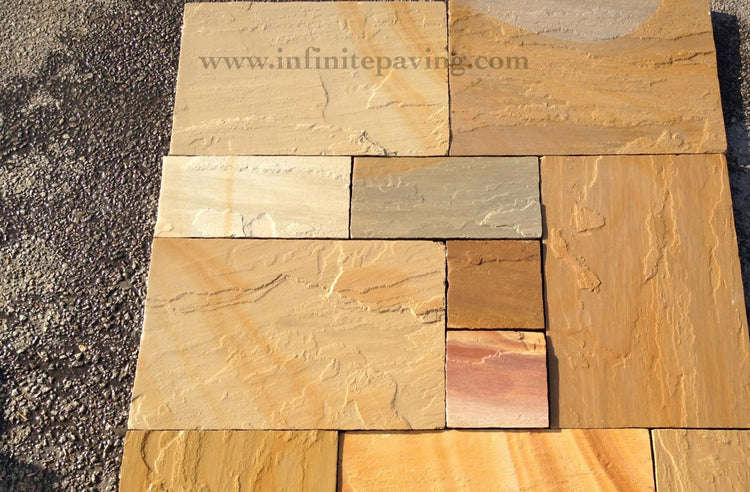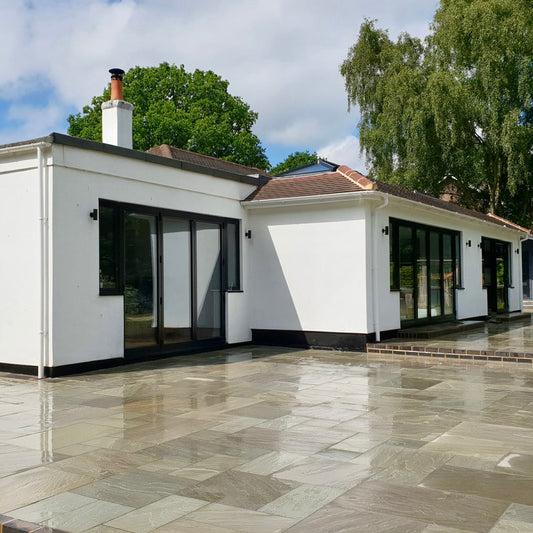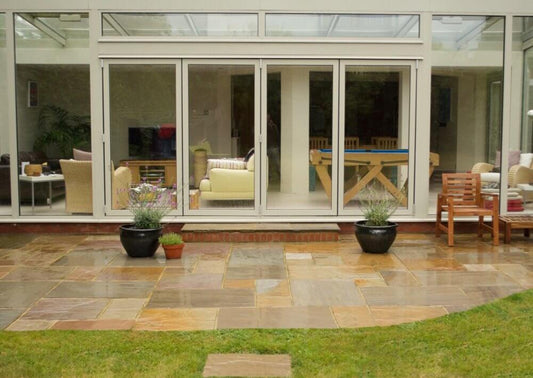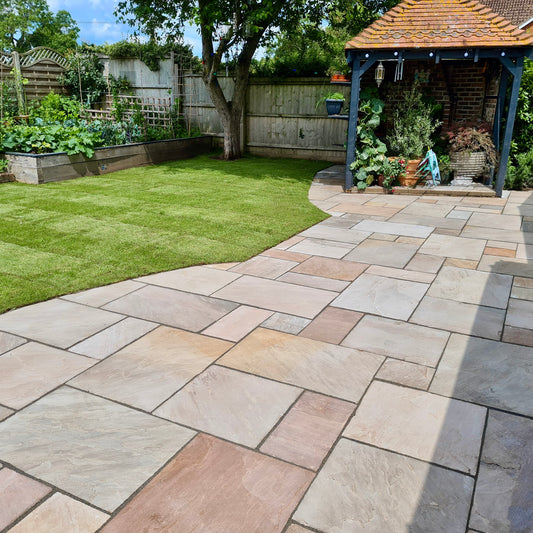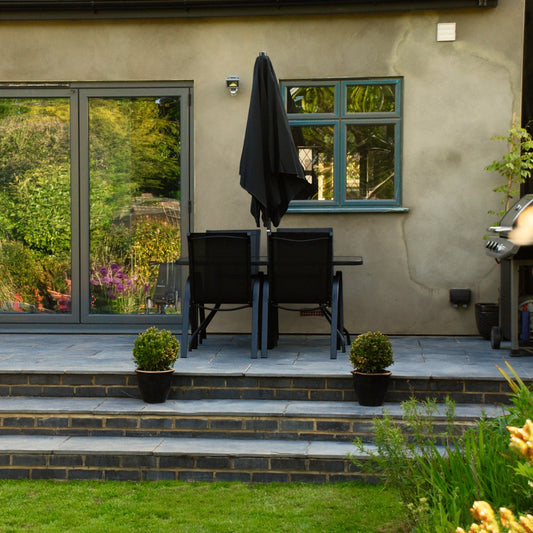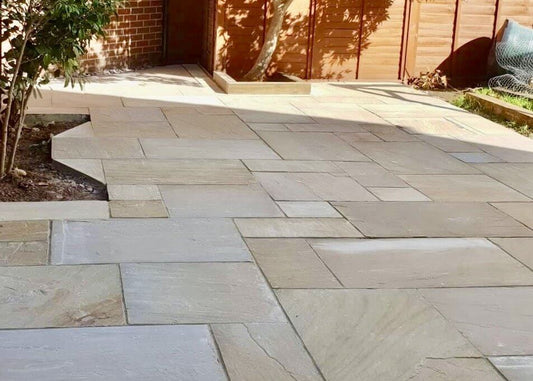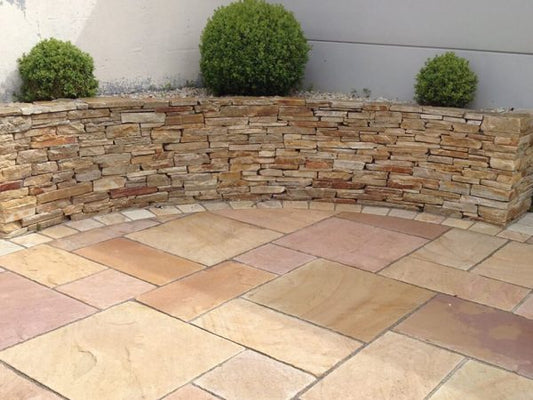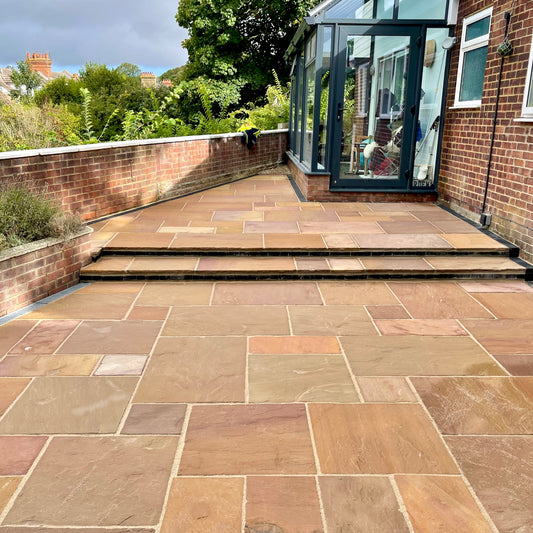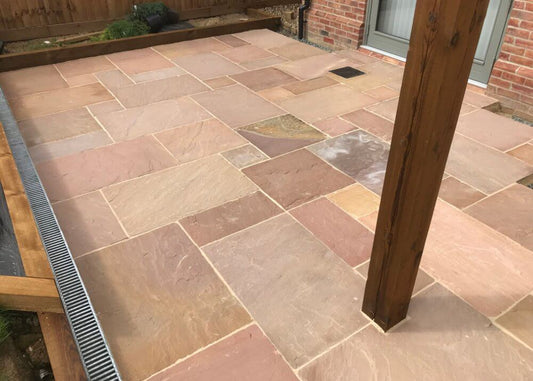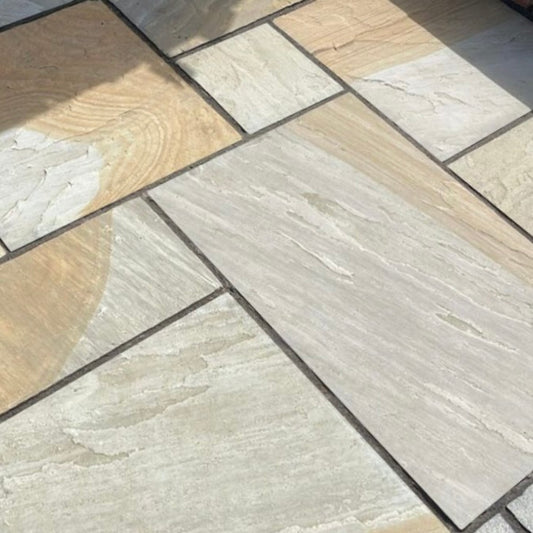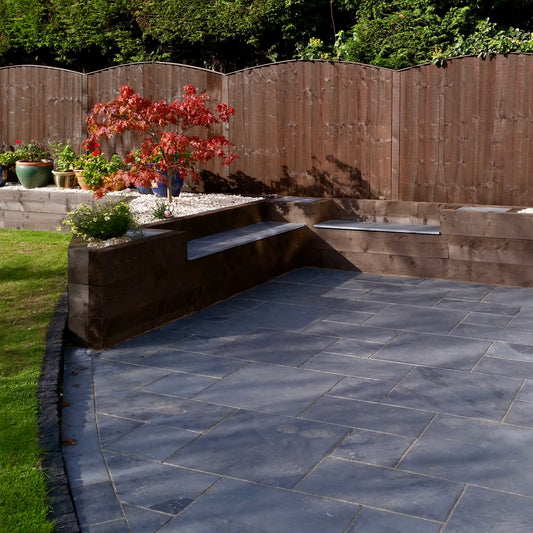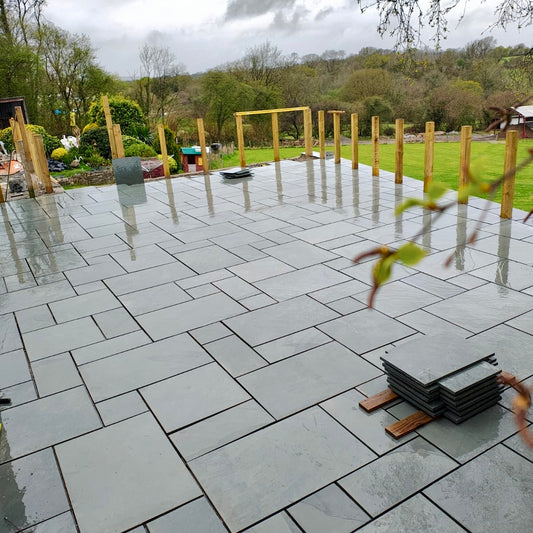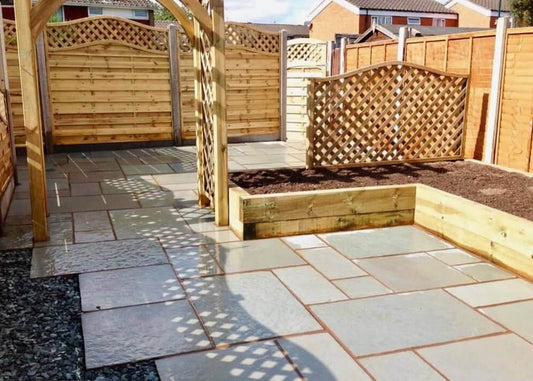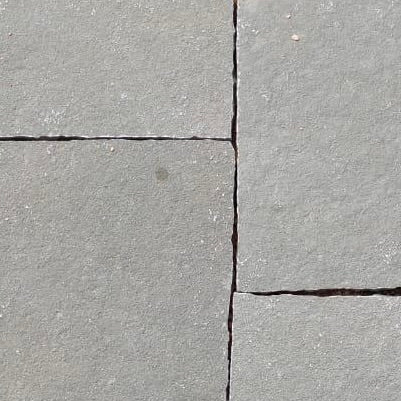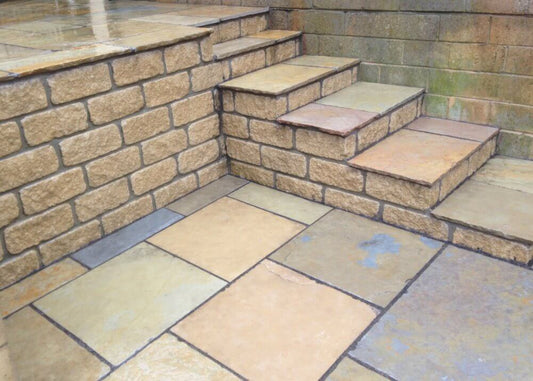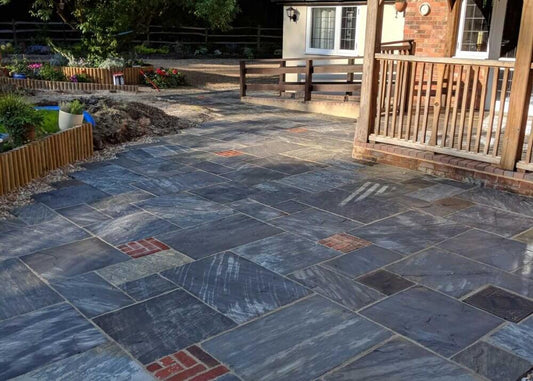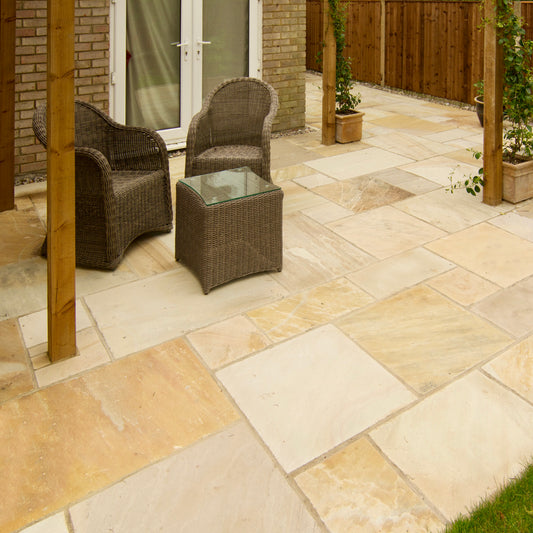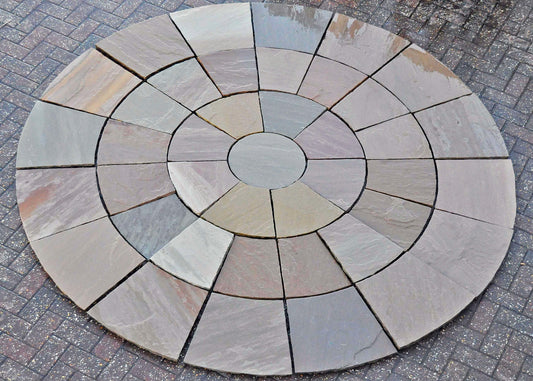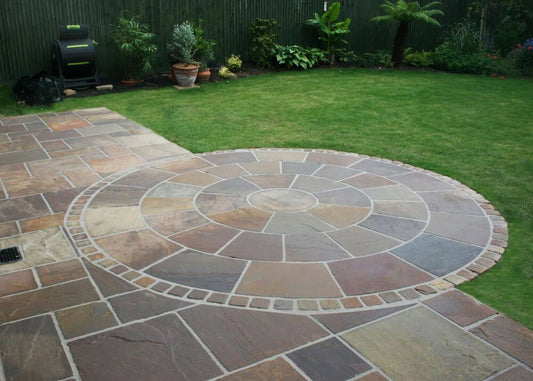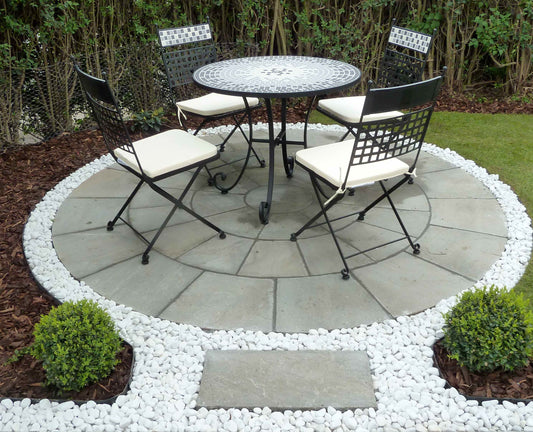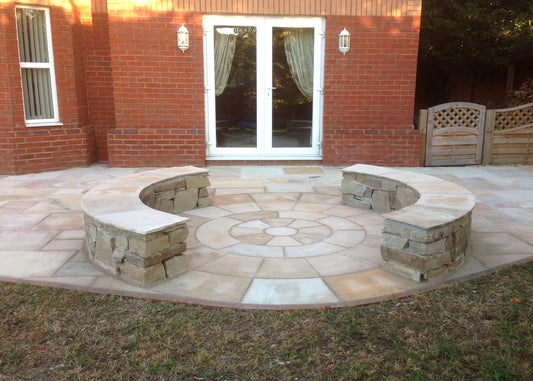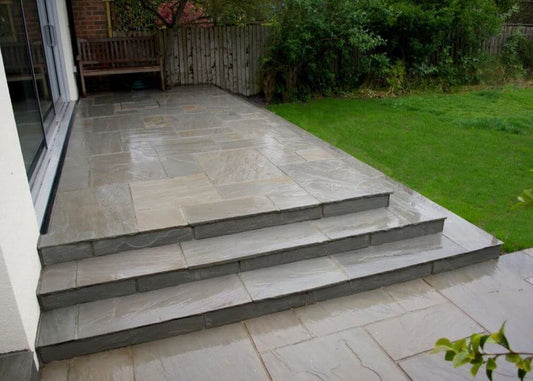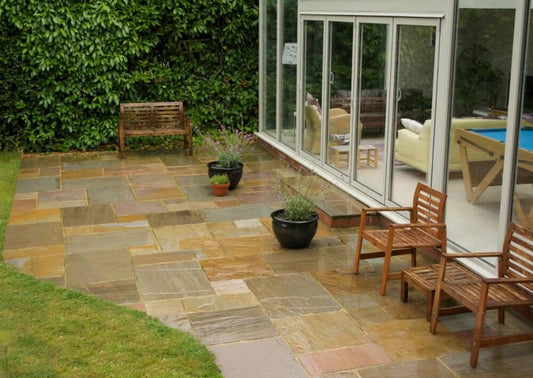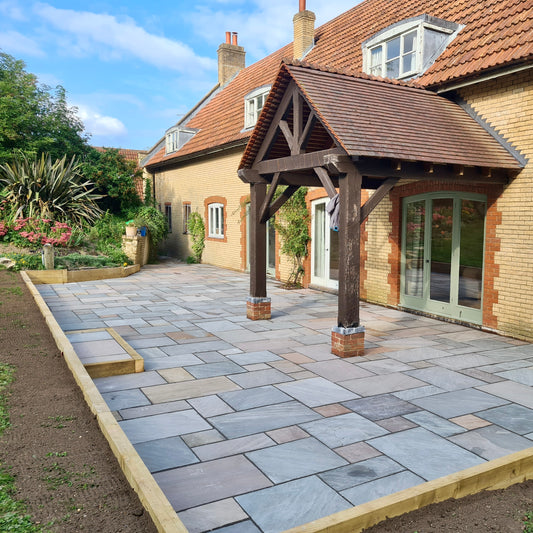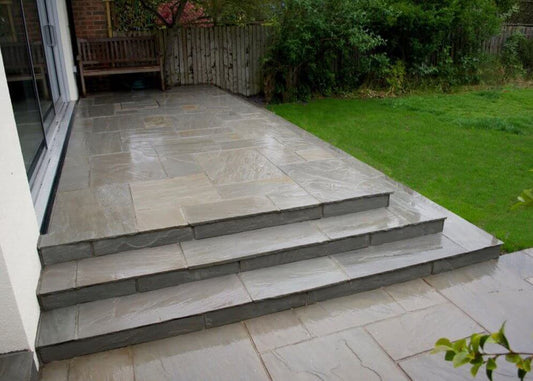Lay paving slabs easier and quicker with calibrated Indian sandstone, limestone and slate. Calibrated natural stone is processed so that the slabs are all the same size and thickness (22mm depth). This leaves them with a series of distinct grooves on the underside of the stone and makes them easier to lay during landscaping projects.
Benefits of calibrating paving slabs include:
- It’s easy and quick to install
- Calibrated slabs bond better to the bedding mortar than uncalibrated paving, for a long-lasting finish
- It’s great for design projects where the flooring continues inside and out of the home
Calibrated stone is usually made with hand-split (riven) stone. You can buy calibrated paving slabs with machine-cut edges for a sharper cleaner look or hand-cut (chiselled) edges for a more natural look.
Landscaping is much easier with calibrated stone paving.
All of our Indian sandstone, limestone and slate stones can be calibrated. And here you will find colours ranging from green to brown, black, mint fossil and blue-grey.
It’s slightly more expensive to calibrate stone, but you will save on labour costs, time and effort when it comes to laying the stones. Choose whichever style, size and colour you want, and please contact our specialists if you have any questions.

